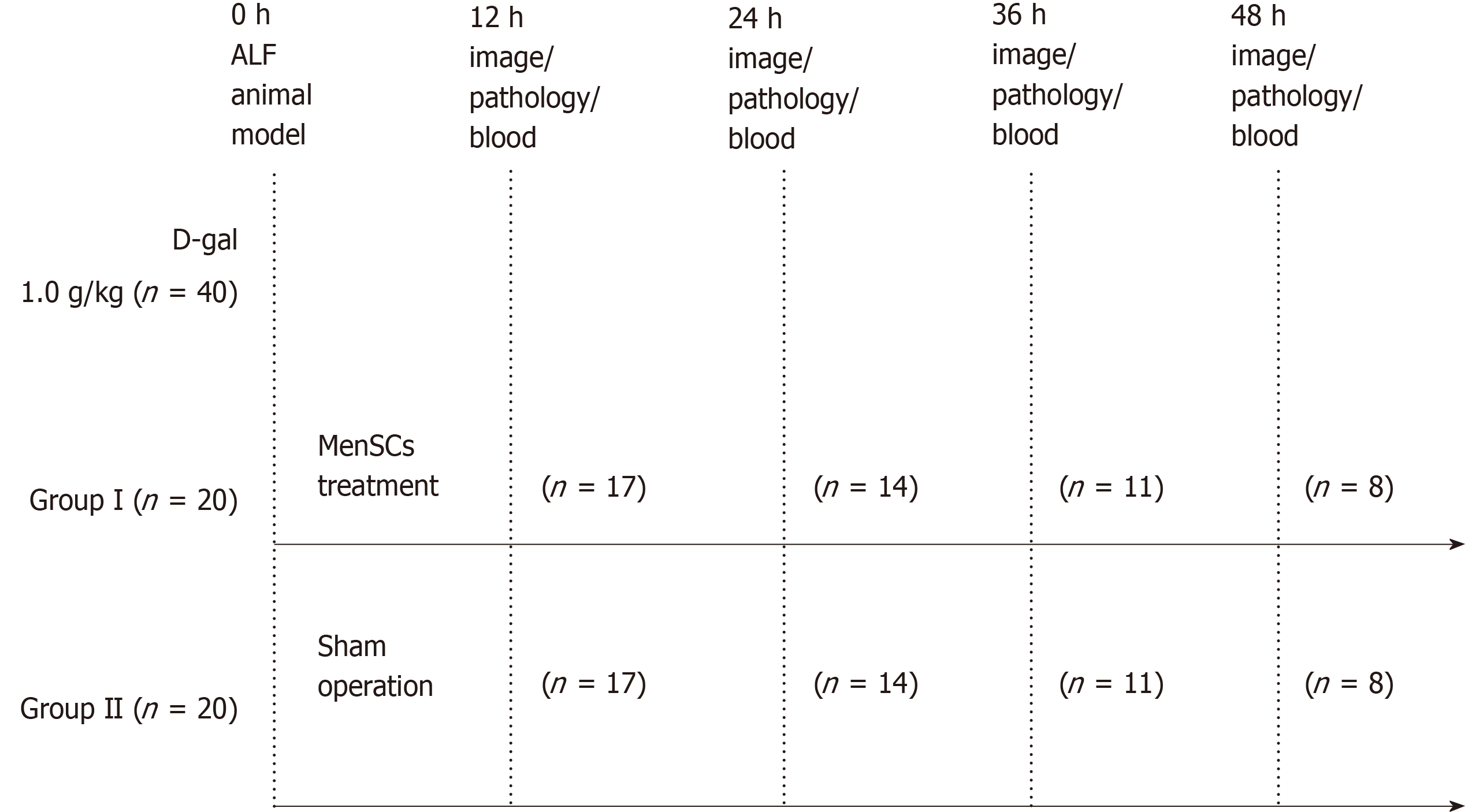Copyright
©The Author(s) 2019.
World J Gastroenterol. Nov 7, 2019; 25(41): 6190-6204
Published online Nov 7, 2019. doi: 10.3748/wjg.v25.i41.6190
Published online Nov 7, 2019. doi: 10.3748/wjg.v25.i41.6190
Figure 1 Experimental design.
Acute liver failure (ALF) was induced in forty animals with D-galactosamine (D-gal) at a dose of 1.0 g/kg. The treatment group (Group I, n = 20) received cell transplantation and the control group (Group II, n = 20) received a sham operation. Animals from both groups were sacrificed every 12 h. Blood samples were collected for biochemical analysis. Three major organs (the lungs, liver, and spleen) were isolated and immediately imaged with the In vivo Imaging System. Then liver tissues were collected for pathological examination. ALF: Acute liver failure; MenSCs: Menstrual blood stem cells; D-gai: D-galactosamine; IVIS: In vivo Imaging System.
- Citation: Cen PP, Fan LX, Wang J, Chen JJ, Li LJ. Therapeutic potential of menstrual blood stem cells in treating acute liver failure. World J Gastroenterol 2019; 25(41): 6190-6204
- URL: https://www.wjgnet.com/1007-9327/full/v25/i41/6190.htm
- DOI: https://dx.doi.org/10.3748/wjg.v25.i41.6190









